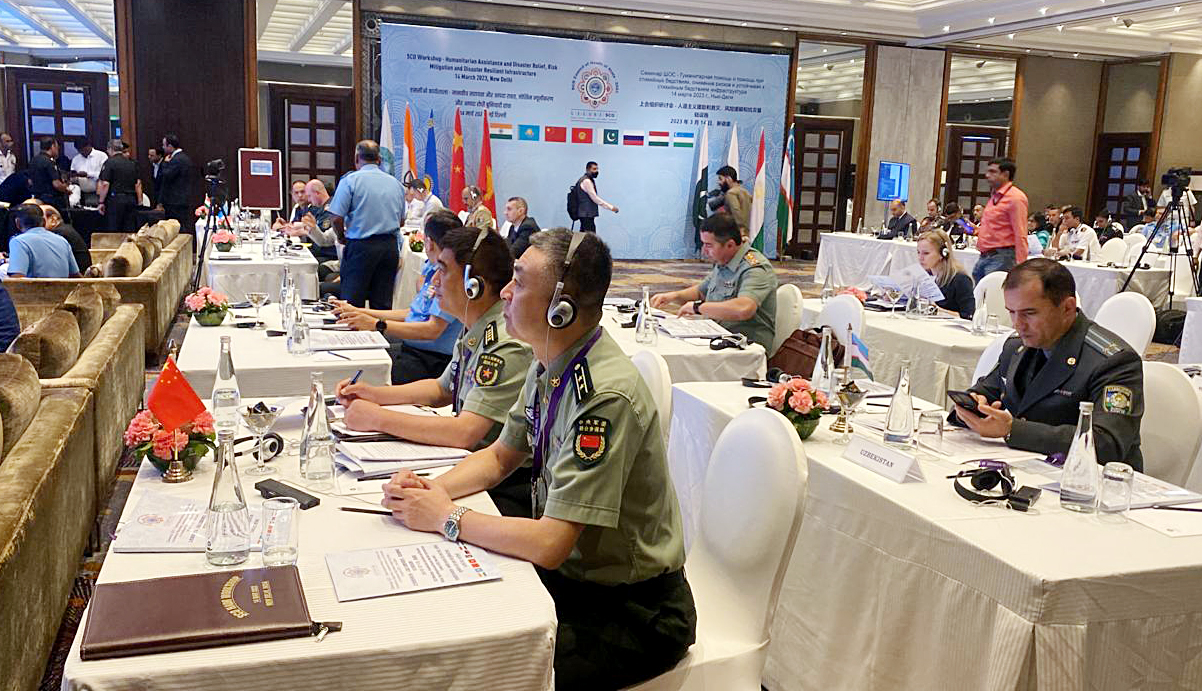2023 is the year when the rotating presidency of the Shanghai Cooperation Organisation (SCO) vests with India. The organisation originated as the Shanghai Five in 1996, and was expressly designed to ensure an amicable settlement of pending boundary disputes between the members. Had the present leadership of the PRC been in charge of the country at the time, none of these issues would have been settled. Instead, all were. Since Xi Jinping took over as CCP General Secretary in 2012, not only have the few remaining boundary disputes between China and nearby powers not been resolved, but have actually worsened. The CCP had long been expert at making use of geopolitical fault lines to its own advantage, such as by siding with the US against the USSR from the 1970s onwards, an open partnership that ended only with the demise of the Soviet Union in 1991. Despite the PRC seeking to displace the US as the primary power from the closing years of the 20th century, an expanding Chinese economy was ensuring the flow of billions of US dollars into the pockets of persons of influence in that country. Since the 1990s in particular, once President Bill Clinton opened the gates to the WTO for the PRC, the close connections between the Leadership Compound in Beijing and Wall Street multiplied. Even during the years when Donald Trump was President of the United States, such Wall Street boosters as Treasury Secretary Steven Mnuchin and Commerce Secretary Wilbur Ross were influential in toning down the measures that the White House was wanting to take with regard to the discriminatory trade practices of the PRC. It is not only in the US that a few have fattened on the proceeds of commerce with China, but in Europe as well. Small wonder that politicians across both sides of the Atlantic openly say that China needs to be accommodated, even while the only accommodation acceptable to Xi is when the other side concedes to his demands without getting any corresponding concession in exchange. Of course, soft words mingle with hard actions, thereby assisting apologists of the CCP to ensure that the one-sided flow of concessions continues without abatement.
Among the international organisations that are heavily influenced by the PRC is the SCO, a fact well known to the Government of India. In the real world, the fables that form the basis of children’s stories do not come true, and given the fact that western pressure has resulted in a deepening of the influence of Beijing over capitals such as Tehran and Moscow, the SCO is marked by the influence of the PRC over several of its members. Despite the innumerable times that hopes of a change in the behaviour of GHQ-Rawalpindi or the CCP have been belied, there remain voices in India that persist in talk of “persuading” Pakistan or China to accept the territorial integrity of India. Some claim that such a transformation can come about during the year of India’s presidency, of course once India once again hands over unilateral concessions to Beijing and Islamabad. Fortunately, Prime Minister Narendra Modi and External Affairs Minister S. Jaishankar do not share such a rose-tinted view of reality, and are aware that despite India’s presidency, 2023 is not going to be the year when a transformation in attitudes of Pakistan and China towards India take place. At the same time, the government has not fallen prey to armchair hawks who say that ministers from Pakistan and even the Prime Minister of Pakistan ought not to be invited to the SCO summits taking place in India. All SCO members, including Pakistan, have been invited to the summits taking place in India. Rather than chase after miracles, what is best would be for India to put forward a comprehensive agenda, the implementation of which would result in a better world. Should an SCO member raise any internal issue of India, this may be pointed out and passed over. What needs to be discussed are issues that are multilateral in scope, and which affect all the member countries. India has shown its faith in harmonious coexistence in a multilateral world by agreeing to join an organisation that is so much under Beijing’s shadow, Its Presidency needs to be marked by the imprimatur of “Vasudhaiva Kutumbakam’’. There may be efforts at provoking India to respond in an angry way, but instead, those who act and speak in an irresponsible fashion need to be met with reason
MDN
Indian graciousness and politesse in SCO
इस शब्द का अर्थ जानिये
- Advertisement -

